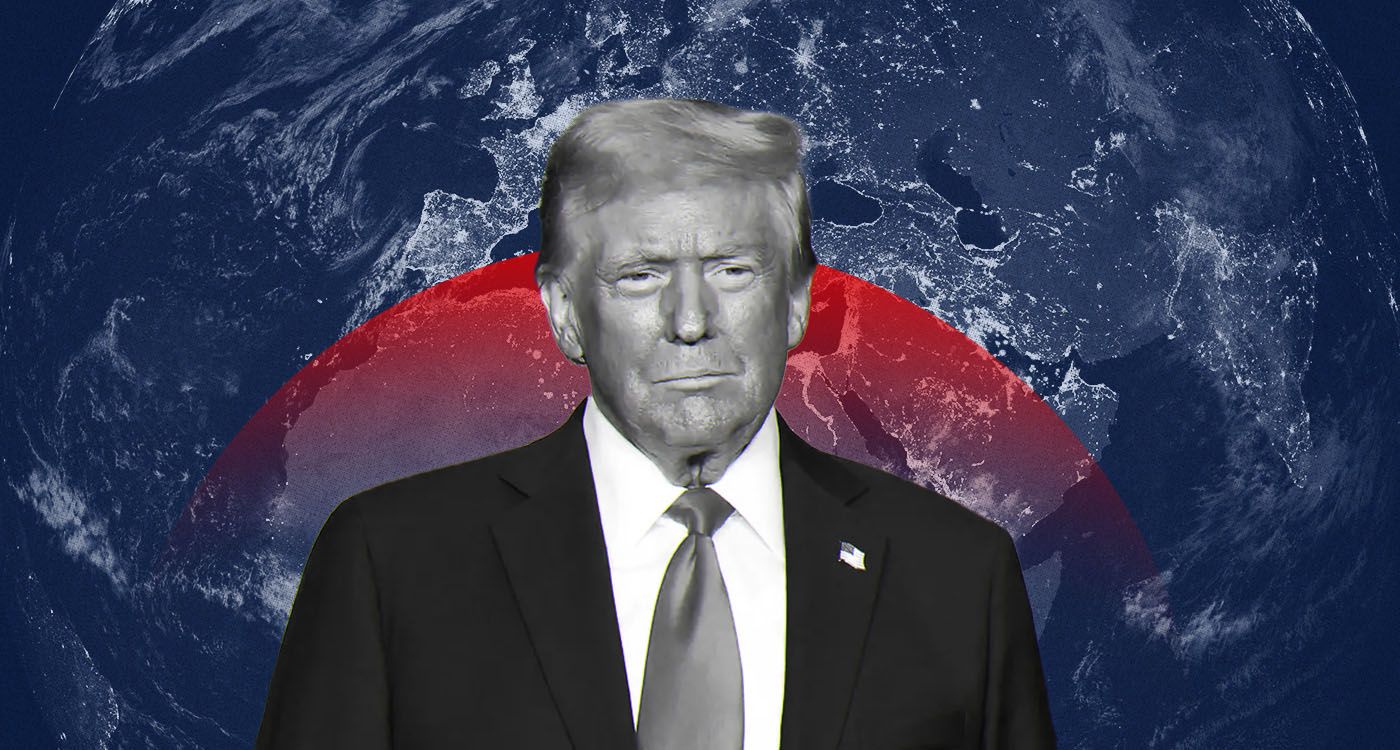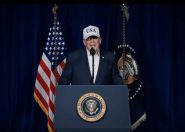- Home
- Middle East
- What Trump’s 'Good News' Could Mean for the Middle East

©This is Beirut
Don't listen to what he says if you want to understand how foreign policy works under Donald Trump in 2025. Watch who gets fired, what trip doesn’t happen, and where the “very good news” is going to land.
Because when President Trump teased an “earth-shattering” announcement ahead of his May 13 Middle East visit—skipping Israel in favor of Saudi Arabia, Qatar and the UAE—it wasn’t just theatrics. It was a pivot. A recalibration. A signal.
And if you read between the lines—especially the firing of National Security Advisor Mike Waltz for “intense coordination” with Israeli Prime Minister Benjamin Netanyahu over possible strikes on Iran—it was a warning, too. The America First-in-chief had enough of Israel steering his ship.
Trump, ever the showman, couldn’t help but dangle the bait: “I’ll be making a very, very big announcement—one of the most important in many years.” He made sure to drop that before boarding Air Force One for a high-stakes, multi-trillion-dollar tour of the Gulf.
What is it about? Peace in Gaza? A nuclear breakthrough with Iran? A trillion-dollar investment package from the Saudis? All three? Probably.
But more than what the “good news” is, what it isn’t speaks volumes.
It’s not about another Abraham Accord redux with Israel. It’s not about Israeli security. And it’s certainly not about Bibi Netanyahu.
By snubbing Israel, during a moment of crisis no less, Trump has done what few American presidents have dared to do: remind Israel that it is an ally, not a co-pilot. That its interests don’t always align with Washington’s. And that lobbying your way into the Oval Office doesn’t mean you get to write the next chapter on Iran.
Which brings us to Mike Waltz, Trump’s national security advisor turned political landmine. A former Army Special Forces and businessman, Waltz was supposed to be a MAGA hawk with diplomatic polish. But in Trump’s world, loyalty is a one-way mirror: reflect his view back to him, or break.
Waltz, according to numerous reports, overstepped. He held back channel talks with Netanyahu on possible military strikes on Iranian nuclear infrastructure, without fully briefing the president. Worse, he aligned himself with the Israeli Prime Minister’s worldview: that Iran must be contained by force, not finessed.
That was the final straw. According to a senior Trump advisor, “You work for the president of your country, not the president of another country.” Ouch.
Waltz was promptly sent packing, reassigned as ambassador to the UN. It was the diplomatic equivalent of a polite guillotine.
And at the heart of this drama is a fundamental difference in worldview.
Trump doesn’t trust Tehran, but he doesn’t trust Netanyahu’s instincts either. The president who pulled out of the JCPOA in 2018 now seems to believe a better deal can be made, one with more teeth, fewer entanglements and a bigger splash.
Trump’s nuclear envoy, Steve Witkoff, has been quietly brokering talks with Iran through Oman. Reports say Trump even waved off a planned Israeli strike this May, urging Netanyahu to hold off. “Let’s make a deal,” he told aides, echoing his old mantra. This isn’t appeasement, it’s strategy, it’s Trump betting on the art of the realpolitik deal.
Meanwhile, Israel feels cornered. Over 52,000 Palestinians have died in Gaza, mostly women and children, and the war is metastasizing into a regional time bomb. But the Biden and Trump teams both advised restraint. Netanyahu, sensing a rare opening with Waltz, tried to steer US policy toward preemptive military action. Trump didn’t bite. Instead, he pulled the plug.
When Trump confirmed he wouldn’t visit Israel, the diplomatic community felt the aftershocks. A president, especially one with Trump’s pro-Israel record, doesn’t just not visit Israel unless he’s trying to say something.
The Gulf states are rising powers. Saudi Arabia is hosting Trump like royalty again, hoping to ink deals on security and possibly nuclear energy. Qatar is lining up a massive Boeing order. The UAE wants guarantees on Iran and Syria. These are transactional relationships, and Trump loves transactions.
But skipping Israel also means something deeper: a shift in leverage. Trump doesn’t need Netanyahu to sell peace in Gaza or a new Iran deal. In fact, Bibi might be the biggest obstacle to both. Trump wants the Nobel Peace Prize, and the Arabs have more to offer.
In Trump’s second term, Middle East policy isn’t about choosing sides, but writing the script. And this script doesn’t have room for actors going off-book: delivers Gaza a Marshall Plan-style redevelopment, possibly under Emirati Qatari oversight; strikes a new deal with Iran, one he can call “Trump’s JCPOA” but with more muscle; sidelines Israeli overreach without burning the alliance entirely.
It’s risky, yes. But Trump believes he can thread the needle: praise Israel when convenient, pressure it when needed and profit along the way.
There’s an old saying in the Middle East, “The enemy of my enemy is my frenemy.” Trump’s doctrine seems to be, “Everyone is my frenemy until I get a better deal.”
So when Trump says “very good news” is coming, he’s not bluffing. He’s signaling a shift. Away from reflexive alignment with Israel. Away from Washington’s traditional diplomacy. Toward a hyper-personal, brand-driven foreign policy with one goal: headlines, history and a legacy deal to outshine Obama’s.
What happens next? That depends on whether Iran blinks, whether Gaza quiets down and whether Netanyahu finally realizes that even in the Trump era, being an ally doesn’t mean writing the playbook.
And as always with Trump: it’s not the news itself, it’s what he doesn’t say that matters most.
Read more




Comments